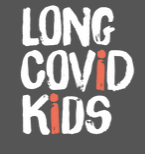Aphasia (HP:0002381)
An acquired language impairment of some or all of the abilities to produce or comprehend speech and to read or write.
Synonyms: Difficulty finding words, Losing words, Loss of words
Comment: Aphasia is caused by brain injury. The most common cause is stroke, but aphasia can also be caused by other factors such as head trauma, brain tumors, or infections. The terms aphasia and dysphasia are usually considered to be synonymous, but the word dysphasia has been used inconsistently and it is recommended to no longer use the term dysphasia.
Pubmed References: PMID:27384070
Cross References: MSH:D001037, SNOMEDCT_US:87486003, UMLS:C0003537
KEGG Pathway
| Index | Name | P-value | Adjusted p-value | Odds Ratio | Combined score |
| 1 | RNA polymerase | 0.0001038 | 0.009967 | 172.08 | 1578.44 |
| 2 | Cytosolic DNA-sensing pathway | 0.0004323 | 0.01565 | 81.68 | 632.69 |
| 3 | Long-term potentiation | 0.0004889 | 0.01565 | 76.63 | 584.21 |
| 4 | Aldosterone-regulated sodium reabsorption | 0.01835 | 0.1011 | 61.59 | 246.23 |
| 5 | Thyroid cancer | 0.01835 | 0.1011 | 61.59 | 246.23 |
GO: Biological Process
| Index | Name | P-value | Adjusted p-value | Odds Ratio | Combined score |
| 1 | negative regulation of tubulin deacetylation (GO:1904428) | 0.002498 | 0.03369 | 555.17 | 3326.77 |
| 2 | positive regulation of protein localization to synapse (GO:1902474) | 0.002498 | 0.03369 | 555.17 | 3326.77 |
| 3 | cellular response to brain-derived neurotrophic factor stimulus (GO:1990416) | 0.002498 | 0.03369 | 555.17 | 3326.77 |
| 4 | intracellular distribution of mitochondria (GO:0048312) | 0.002498 | 0.03369 | 555.17 | 3326.77 |
| 5 | negative regulation of establishment of protein localization to mitochondrion (GO:1903748) | 0.002997 | 0.03369 | 444.11 | 2580.41 |
GO: Molecular Function
| Index | Name | P-value | Adjusted p-value | Odds Ratio | Combined score |
| 1 | glutamate-gated calcium ion channel activity (GO:0022849) | 0.002498 | 0.04233 | 555.17 | 3326.77 |
| 2 | minor groove of adenine-thymine-rich DNA binding (GO:0003680) | 0.003495 | 0.04233 | 370.07 | 2093.27 |
| 3 | NMDA glutamate receptor activity (GO:0004972) | 0.003994 | 0.04233 | 317.19 | 1751.86 |
| 4 | 5′-3′ RNA polymerase activity (GO:0034062) | 0.00009070 | 0.002403 | 184.84 | 1720.52 |
| 5 | DNA-directed 5′-3′ RNA polymerase activity (GO:0003899) | 0.00009070 | 0.002403 | 184.84 | 1720.52 |
GO: Cellular Component
| Index | Name | P-value | Adjusted p-value | Odds Ratio | Combined score |
| 1 | RNA polymerase I complex (GO:0005736) | 0.00001750 | 0.0006170 | 454.07 | 4973.59 |
| 2 | NURF complex (GO:0016589) | 0.002498 | 0.02248 | 555.17 | 3326.77 |
| 3 | neurofibrillary tangle (GO:0097418) | 0.002498 | 0.02248 | 555.17 | 3326.77 |
| 4 | RNA polymerase III complex (GO:0005666) | 0.00003428 | 0.0006170 | 312.09 | 3208.63 |
| 5 | NMDA selective glutamate receptor complex (GO:0017146) | 0.003994 | 0.02566 | 317.19 | 1751.86 |
Hub genes predicted as biomarkers & predicted FDA approved drugs
| Hub Genes (ranked) | FDA-Approved Drugs |
| MAPT | – |
| BPTF | – |
| GRIN2A | MEMANTINE, GLYCINE, DEXTROMETHORPHAN POLISTIREX |
| TRIP12 | – |
| SCN1A | ETHOSUXIMIDE |
| PLP1 | – |
| C9orf72 | – |
| POLR1D | – |
| POLR1C | – |
| KRAS | PANITUMUMAB, CETUXIMAB |


